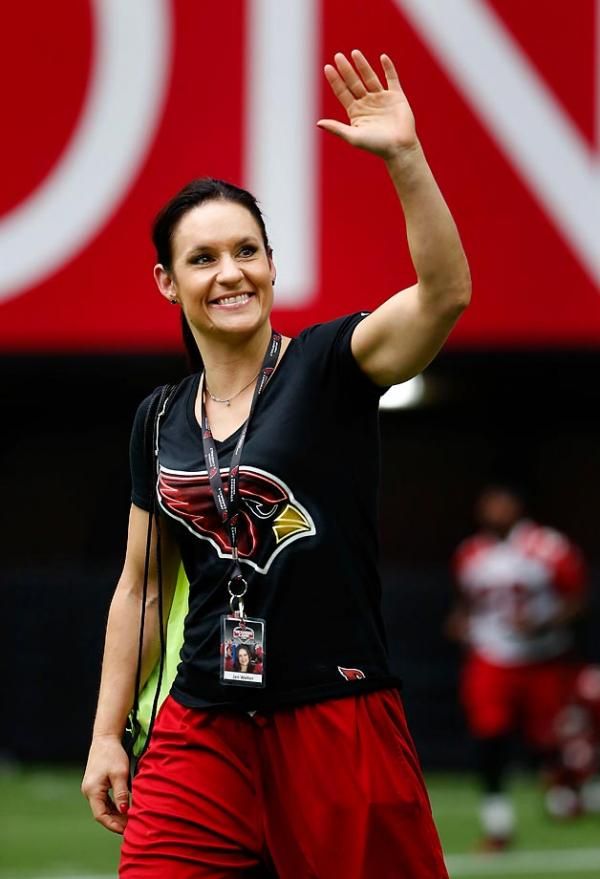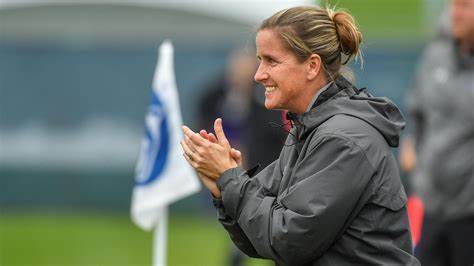Football: Successful Women’s Football Coach

Successful Women's Football Coach
Coaching women’s football requires a unique blend of strategic acumen, leadership skills, and a deep understanding of the sport. This article unravels the essential elements that contribute to becoming a successful women’s football coach.
Embrace Inclusive Leadership
Successful women’s football coaches foster an inclusive environment where each player feels valued. Embrace leadership that appreciates diversity in playing styles, backgrounds, and personalities. A coach’s ability to create unity within diversity often defines the success of a team.
Technical Proficiency
A successful women’s football coach must be technically adept, possessing a comprehensive understanding of the game’s intricacies. This includes not only a profound knowledge of tactical strategies but also expertise in individual skills, positioning, and game analysis.

Effective Communication
Communication is the cornerstone of successful coaching. Beyond tactical instructions, a coach must convey inspiration, encouragement, and constructive feedback. Cultivate open lines of communication, ensuring players understand their roles, expectations, and the collective vision for the team.
Tailored Training Programs
Recognize the individual strengths and areas for improvement among your players. Develop training programs that cater to the specific needs of each athlete, fostering a holistic approach to skill enhancement, physical conditioning, and mental resilience.
Strategic Game Planning
Successful coaches approach each match with a meticulously crafted game plan. This involves studying opponents, analyzing their strengths and weaknesses, and formulating strategies that capitalize on the team’s strengths. Adaptable game plans, capable of responding to dynamic match situations, are a hallmark of effective coaching.
Cultivate a Positive Team Culture
A successful women’s football coach shapes the team culture by fostering a positive and supportive environment. Instill a sense of camaraderie, mutual respect, and a collective commitment to shared goals. A cohesive team culture enhances performance on and off the field.
Continuous Learning and Adaptation
The world of football is dynamic, and successful coaches stay ahead by embracing continuous learning. Stay updated on evolving tactics, rule changes, and sports science. The ability to adapt coaching methods based on the latest insights ensures relevance and effectiveness.
Mental Resilience Training
Beyond physical prowess, mental resilience is a crucial aspect of success in football. Incorporate mental resilience training into your coaching regimen, equipping players to navigate pressure, setbacks, and high-stakes moments with composure.
Empowerment and Motivation
Successful coaches empower their players by instilling confidence and fostering a sense of ownership. Motivate athletes not just through wins but by recognizing effort, improvement, and commitment. A motivated team is one that consistently strives for excellence.
Holistic Player Development
Go beyond on-field skills and contribute to the holistic development of your players. Support their educational pursuits, mental well-being, and life skills. A coach who invests in the overall growth of their athletes builds a lasting legacy beyond the confines of the football pitch.
Building Resilient Team Dynamics
Successful women’s football coaches understand the significance of fostering resilient team dynamics. Cultivate an environment where players not only rely on their own strengths but also trust and support each other. Building resilience within the team ensures that setbacks become opportunities for growth, and challenges are faced with collective determination.
Leveraging Technology in Coaching
Embrace the technological advancements that have transformed the landscape of sports coaching. Successful women’s football coaches leverage video analysis, performance tracking apps, and sports science tools to gain insights into player performance and team dynamics. Integrating technology into coaching methodologies not only enhances the precision of training but also provides a competitive edge in strategic planning and player development.
Conclusion
To be a successful women’s football coach is to be a multifaceted leader, strategist, and mentor. It involves a commitment to continuous improvement, a deep understanding of the sport, and a genuine passion for the holistic development of athletes. By embodying these principles, a coach not only achieves victories on the field but also leaves an indelible mark on the lives of the players they guide.





